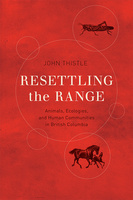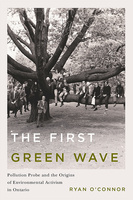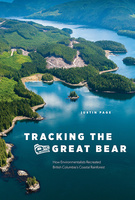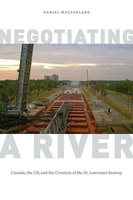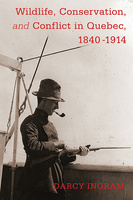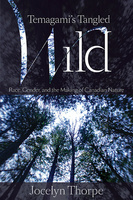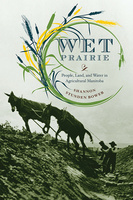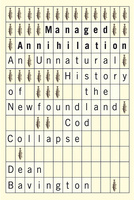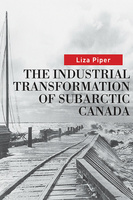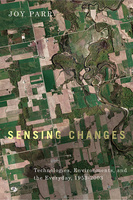Nature | History | Society
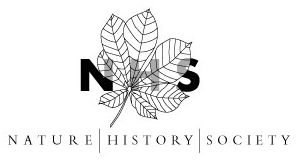
Series editor: Graeme Wynn
Nature | History | Society is a series devoted to the publication of high-quality scholarship in environmental history and allied fields. Its broad compass is signaled by its title: "Nature" because it takes the natural world seriously; "History" because it aims to foster work that has temporal depth; and "Society" because its essential concern is with the interface between nature and society. The series is avowedly interdisciplinary and features the work of anthropologists, ecologists, historians, geographers, literary scholars, political scientists, sociologists, and others whose interests resonate with its mandate. It offers a timely outlet for lively, innovative, and well-written work on the interactions of people and nature through time in North America.
Resettling the Range
Animals, Ecologies, and Human Communities in British Columbia
This unconventional history looks at the resettlement of interior British Columbia from the perspective of campaigns to exterminate grasshoppers and wild horses, creatures considered by some to be pests.
The First Green Wave
Pollution Probe and the Origins of Environmental Activism in Ontario
The First Green Wave examines the origins and development of first wave environmental activism (1967-86) in Toronto, home to one of Canada’s earliest and most dynamic communities of environmentalists.
Tracking the Great Bear
How Environmentalists Recreated British Columbia’s Coastal Rainforest
A detailed account of the complex and contested process that resulted in the establishment of the Great Bear Rainforest in coastal British Columbia.
Negotiating a River
Canada, the US, and the Creation of the St. Lawrence Seaway
A revealing look at the planning and building of the St. Lawrence Seaway and Power Project -- a megaproject that had a profound impact on North American history.
Power from the North
Territory, Identity, and the Culture of Hydroelectricity in Quebec
This book explores how French Canada’s aspirations migrated north with natural resource development, creating a culture of hydroelectricity that continues to shape territorial planning and relations with Aboriginal peoples in the province.
Wildlife, Conservation, and Conflict in Quebec, 1840-1914
A revealing look at the origins of modern wildlife conservation in Quebec.
Inventing Stanley Park
An Environmental History
A timely exploration of how the interplay between attitudes toward nature, parks policy, public memory, and the force of nature helped shape one of the world’s most famous urban parks.
Temagami's Tangled Wild
Race, Gender, and the Making of Canadian Nature
This book shows that wilderness is created rather than discovered, and describes how the creation of wilderness has led to the marginalization of Aboriginal peoples from their territories.
Wet Prairie
People, Land, and Water in Agricultural Manitoba
This in-depth exploration of surface water management in southern Manitoba reveals how coping with environmental realities has altered both residents’ relations with each other and their ideas about the role of the state.
Manufacturing National Park Nature
Photography, Ecology, and the Wilderness Industry of Jasper
Focusing on Jasper National Park, this richly illustrated book shows how photography has shaped and continues to inform perceptions of nature and ecological issues in Canada.
Managed Annihilation
An Unnatural History of the Newfoundland Cod Collapse
By examining one of the largest natural resource management failures of the twentieth century – the collapse of the Newfoundland cod fishery – this book seeks to understand the history of, and possible alternatives to, managerial responses to environmental issues.
What Is Water?
The History of a Modern Abstraction
A history of the modern concept of water that traces how a scientific abstraction has helped to produce a global crisis.
The Industrial Transformation of Subarctic Canada
A revealing history of human impact in the Canadian North, this book focuses on the causes and consequences of the industries that replaced the fur trade.
Sensing Changes
Technologies, Environments, and the Everyday, 1953-2003
These narratives about state-driven megaprojects and technological and regulatory changes reveal how humans make sense of their world in the face of rapid environmental change.
Home Is the Hunter
The James Bay Cree and Their Land
The James Bay Cree lived in relative isolation until 1970, when Northern Quebec was swept up in the political and cultural changes of the Quiet Revolution. Home Is the Hunter presents the historical, environmental, and cultural context from which this recent story grows.

